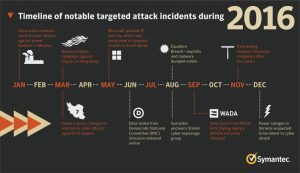A recent report has revealed that despite seeing an improvement in the UAE’s internet security threat profile in 2016, the country is still a key target for hackers.

Symantec’s Internet Security Threat Report (ISTR) found that the UAE has improved its global threat profile, dropping from 41 in 2015 to 51 last year. While this indicates a lower percentage of source-based security threats, including malicious code, spam, phishing hosts, web and network attacks, and bots originating in the country, the report also shows that the UAE is still being heavily targeted for ransomware. It currently sits as the second highest ranked in the Middle East and Africa region, and represents about 0.5 percent of all global detections.
The ISTR also found that email is increasingly becoming the weapon of choice for cyber criminals targeting this region, and found that one in 136 emails in the UAE contained a malicious link or attachment. Large enterprises (more than 2,501 employees) in the country received the most emails containing malware and phishing, while small enterprises (less than 250 employees) received the most spam. According to Symantec, cyber criminals attack large companies given the bigger user and asset base, which makes them a more lucrative victim given the multiple attack vectors.

“New sophistication and innovation are the nature of the threat landscape, but this year Symantec has identified seismic shifts in motivation and focus,” said Hussam Sidani, regional manager for Gulf, Symantec. “The world has seen specific nation states doubling down on political manipulation and straight sabotage. In the Middle East, we saw Shamoon putting the Kingdom on high alert again after attacks were uncovered late 2016. Meanwhile, cyber criminals caused unprecedented levels of disruption by focusing their exploits on relatively simple IT tools, unsecured IoT devices and cloud services.
“The UAE has taken commendable measures at federal, public and private levels to solidify cybersecurity in the country. Furthermore, various entities have made efforts to identify and foster future cybersecurity specialists, and there is also a growing awareness about cyber threats in the weakest link in the chain – the end user or consumer,” added Sidani.





